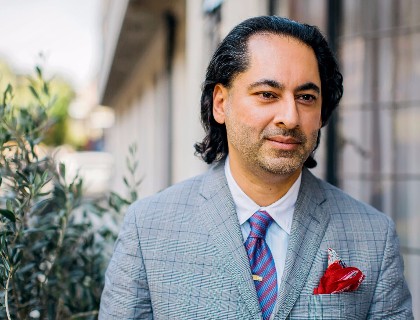Inside the Dermatology Treatment Centre at King Edward VII’s Hospital
FEATURE - 24TH SEPTEMBER 2016
An insight into the Dermatology Treatment Centre at King Edward VII’s Hospital: the joys of the job and common tasks
What I admire about the hospital is its unique heritage and outstanding medical care. The rigorous governance, superb nursing staff and spirit of philanthropy make it a great place to work. It is the only hospital in the country where consultants have to be invited to practise, so being a part of that feels very special.

What I admire about the hospital is its unique heritage and outstanding medical care.
A line of defense
The skin is the largest organ in the body and it has many functions. If it fails for whatever reason, the results can range from a mild irritation to something extremely serious—even life-threatening, because most of its functions are involved in protecting the body in some way. The skin’s main role is to provide a barrier to the external environment. It acts as a first line of defence against infections, using what we call antimicrobial peptides—proteins in the skin that attack any particles carrying infections that land on the body. This is why so many infections start in cuts, where this barrier has been broken. These anti-microbial peptides are very important, as they trigger the body’s immune response.
Eczema is a classic example of the skin barrier failing. In this case it is losing moisture, which is why the sufferer gets dry, cracked, flaky skin. People with eczema often get infections in the affected area, because this initial defence has been compromised. The skin is also vitally important for maintaining body temperature.
People who lose large areas of skin through disease or external trauma start shivering, as the body loses heat through the damaged areas. This can become very serious if not dealt with quite quickly.
As a dermatologist, I also treat diseases and conditions of the hair and nails, but the skin is what we deal with most—in fact, there are about 3,000 different named skin conditions at present. Acne is a familiar one, as is psoriasis. We are seeing more skin cancers, as people become more aware of melanomas. We also see patients who have reacted badly to medication, or have picked up an infection while travelling.
Recognising patterns
I may be biased, but for me dermatology is one of the most interesting specialities. You have to know a lot of general medicine because the skin is impacted by so many other areas, and some minor surgery is also involved.
To do this job well, the ability to recognise patterns in a patient’s symptoms is very important—you need to be able to interpret what you see on the skin and combine this with what the patient is telling you.
I like the fact that a problem can often be diagnosed quite quickly, as the symptoms present on the surface. It can feel like you have a kind of diagnostic x-ray vision; we can, after years of experience, sometimes look at a person and tell them what the problem is straight away.
The impact of something like psoriasis can be devastating. It can have a real impact on quality of life, because it is on the surface for all to see. I have had patients come in for a follow up appointment a month after starting treatment, who walk through the door a completely different person. They have renewed confidence and are really enjoying life, perhaps for the first time in years. That is one of the things I find most satisfying about dermatology: seeing the difference it makes when a patient gets their condition cured or under control.
For more information, visit King Edward VII's Hospital